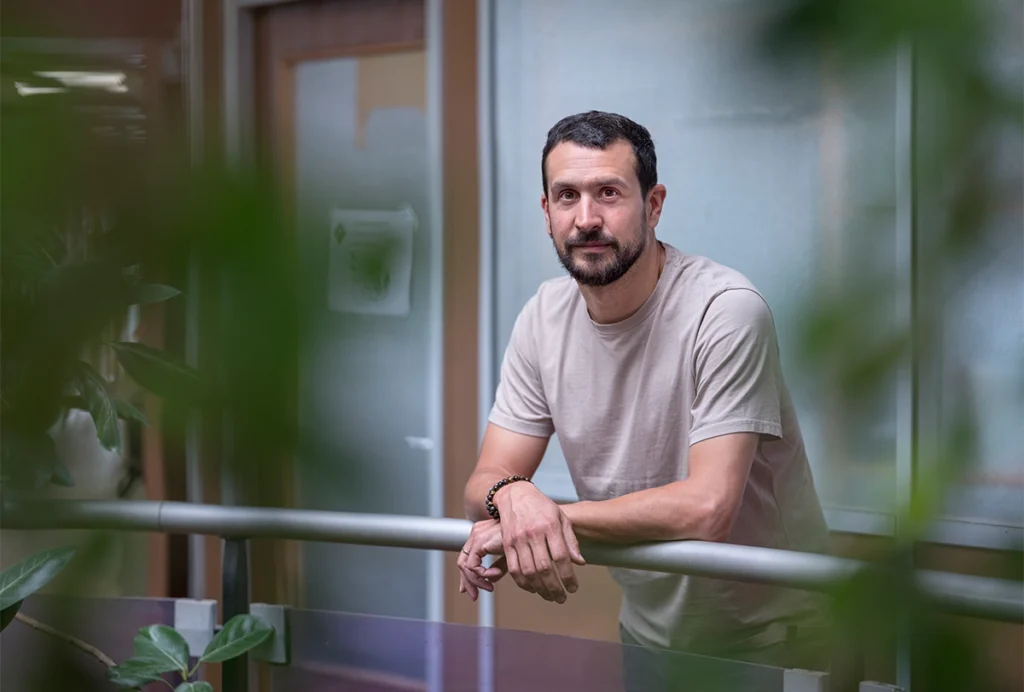Yves Sciama is a freelance science writer, trained in biology and science journalism, who covers life and environmental sciences. His work has appeared in Science et Vie, Le Monde and other major French-language media, as well as in Science. He has won multiple prizes and fellowships, including a yearlong Knight Science Journalism Fellowship at the Massachusetts Institute of Technology in 2014, and is former president of AJSPI, the French association of science journalists.

Yves Sciama
Contributing writer
From this contributor
At the end of the earth with Paul-Antoine Libourel
The French researcher’s accomplishments working with chinstrap penguins in the Antarctic highlight the importance of recording sleep in the wild.

At the end of the earth with Paul-Antoine Libourel
Explore more from The Transmitter
New connectomes fly beyond the brain
Researchers are mapping the neurons in Drosophila’s ventral nerve cord, where the central nervous system meets the rest of the body.

New connectomes fly beyond the brain
Researchers are mapping the neurons in Drosophila’s ventral nerve cord, where the central nervous system meets the rest of the body.
Building an autism research registry: Q&A with Tony Charman
A purpose-built database of participants who have shared genomic and behavioral data could give clinical trials a boost, Charman says.

Building an autism research registry: Q&A with Tony Charman
A purpose-built database of participants who have shared genomic and behavioral data could give clinical trials a boost, Charman says.
Cerebellar circuit may convert expected pain relief into real thing
The newly identified circuit taps into the brain’s opioid system to provide a top-down form of pain relief.

Cerebellar circuit may convert expected pain relief into real thing
The newly identified circuit taps into the brain’s opioid system to provide a top-down form of pain relief.